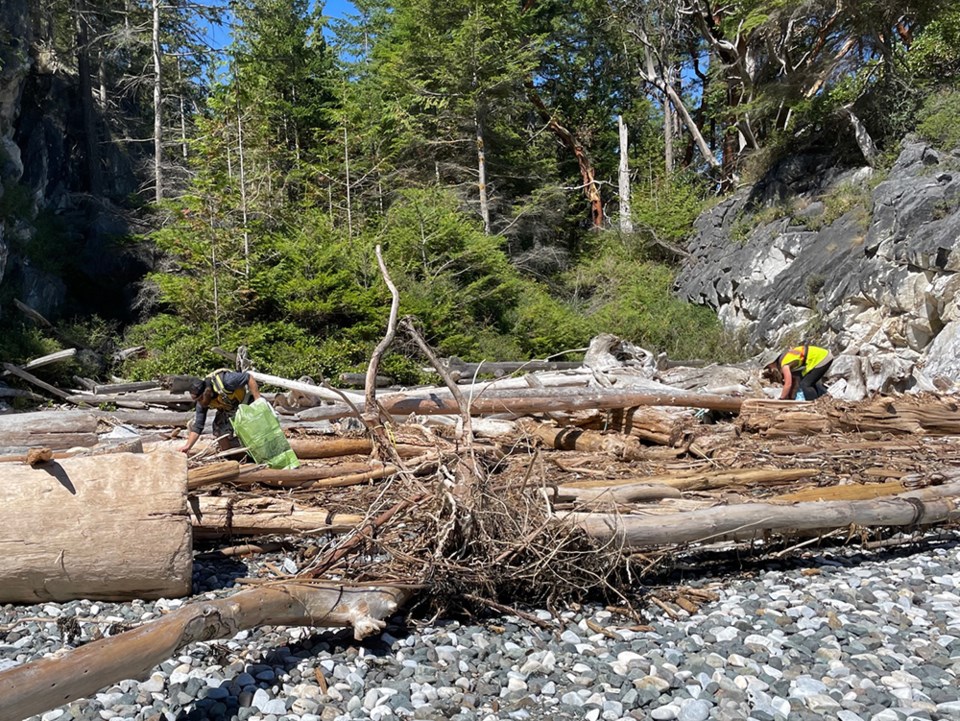Northern Sunshine Coast shores are known far and wide for stunning natural beauty, but that scenery is increasingly marred by marine debris. From plastic bottles to discarded fishing nets, this refuse poses a significant environmental threat, in addition to being an eyesore.
The sight of litter-strewn beaches is disturbingly common, and implications for wildlife and ecosystems are dire. Marine debris poses a hazard to marine life. Seabirds, fish and marine mammals often mistake plastic for food, leading to ingestion that can cause starvation or poisoning.
Entanglement in discarded fishing gear can result in injury or death for many species, including endangered ones. This pollution also affects human health, as toxic chemicals from plastics enter the food chain, ultimately reaching our dinner tables.
The origins of this debris are varied. Some of it is local, resulting from inadequate waste management and littering, but a large amount is carried via ocean currents from other countries. This highlights the global nature of marine pollution and the necessity for international cooperation to address it.
Efforts are being made locally to tackle this issue, as our cover story this week shows. Community cleanups, educational campaigns and stricter regulations on plastic use are positive steps, but greater emphasis on reducing plastic production and improving waste management systems is essential.
Our shores deserve better than to be treated as dumping grounds. We can’t control what floats ashore from other countries, but we can take action locally to ensure our coastlines stay as pristine and beautiful as possible. If you see debris, don’t walk by. Pick it up and find out where to take it.
Join the Peak's email list for the top headlines right in your inbox Monday to Friday.



